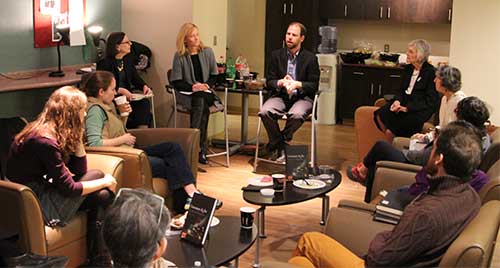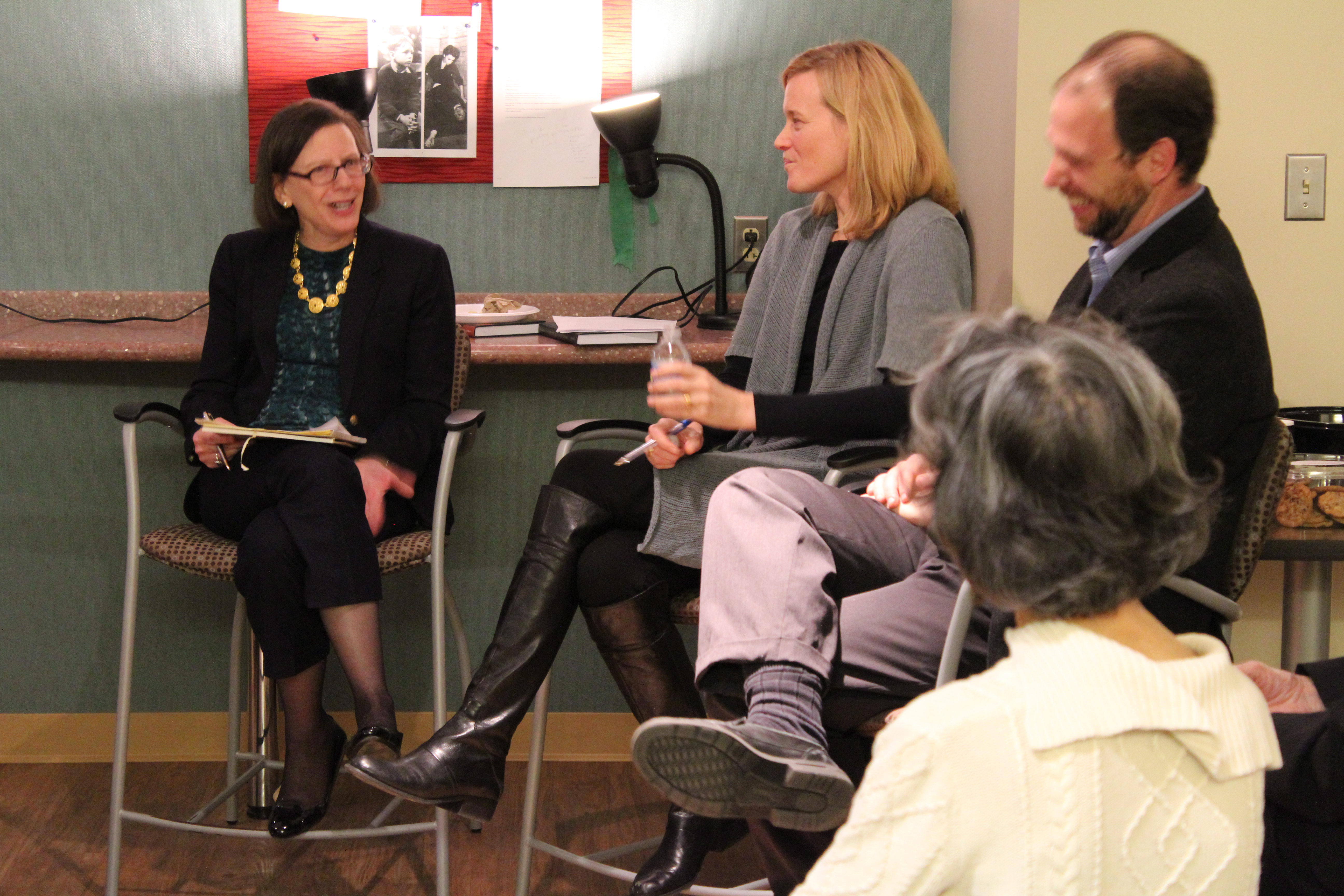Book Launch: “Literature and the Law of Nations, 1580-1680,” by Christopher N. Warren on Dec. 4
In early December, the Department of English celebrated Christopher N. Warren’s recently published book, “Literature and the Law of Nations, 1580-1680” with presentations by the author and University of Pittsburgh faculty members Vivian Curran and Jennifer Waldron. The invitation-only book launch drew about 40 students and faculty from Carnegie Mellon University’s Department of English and the University of Pittsburgh.
Published by Oxford University Press, “Literature and the Law of Nations” shows that international law today owes many of its most basic ideas to early modern culture. Warren, an associate professor of English at CMU, argues in his book that early modern literary genres were deeply tied to debates about global legal order.
Warren’s book shows how major writers of the English Renaissance, such as Hobbes, Milton and Shakespeare deployed genres like epic, tragedy, comedy, tragicomedy and history to shore up the canonical subjects and objects of modern international law.
Professor of English Peggy Knapp kicked off the event with an introduction followed by the author’s brief summary of the book.

“I am interested in the ways that these different genres have different versions of what matters,” said Warren. “My claim is that you can trace the emergence of different kinds of international law by paying attention to different genres.”
Professors Waldron and Curran then presented their commentaries on “Literature and the Law of Nations.”
Waldron, Pitt’s director of the program in medieval and renaissance studies and an associate professor, gave a detailed presentation on the first half of the book, where her expertise lay. She started off by mentioning what she admires about the book and suggested research questions that were inspired by Warren’s book.

“Chris’s method breaks ground for others who might want to follow,” she said. “The basic premise is that relations between literature and law are not analogous, but homologous.”
Waldron added, “We discussed at the Network Ontologies in the Early Modern World Conference the fact that change through time presented challenges for some digital mapping projects, but this is what Chris’s book does so well. And even further, this book suggests that the network that shows the co-evolution of legal and literary history is not only about who knew whom, though Sidney and Gentili did know each other. It’s also about who read whom—and who read what.”
University of Pittsburgh Distinguished Faculty Scholar and Professor of Law Vivian Curran led a discussion on “Literature and the Law of Nations”—calling it “a work of great presentation” that’s she’s “learned so much from.”

“From the perspective of law, the most important message I took from the book is that law can’t be disconnected from its contexts—its surroundings, its influences, all of the many and various networks that perform law,” said Curran.
The book launch took place in the Department’s MA Student Lounge and was followed by a Q&A session and book signing. It was the second one in a series that began January 2015.
Purchase “Literature and the Law of Nations, 1580-1680."
Related:
From Shakespeare to Torture Memos, Christopher N. Warren’s New Book Tells International Law’s Neglected Literary Story
Book Launch: “Intertexuality and the 24-Hour News Cycle”, by John Oddo, on January 23
___
By Amanda King